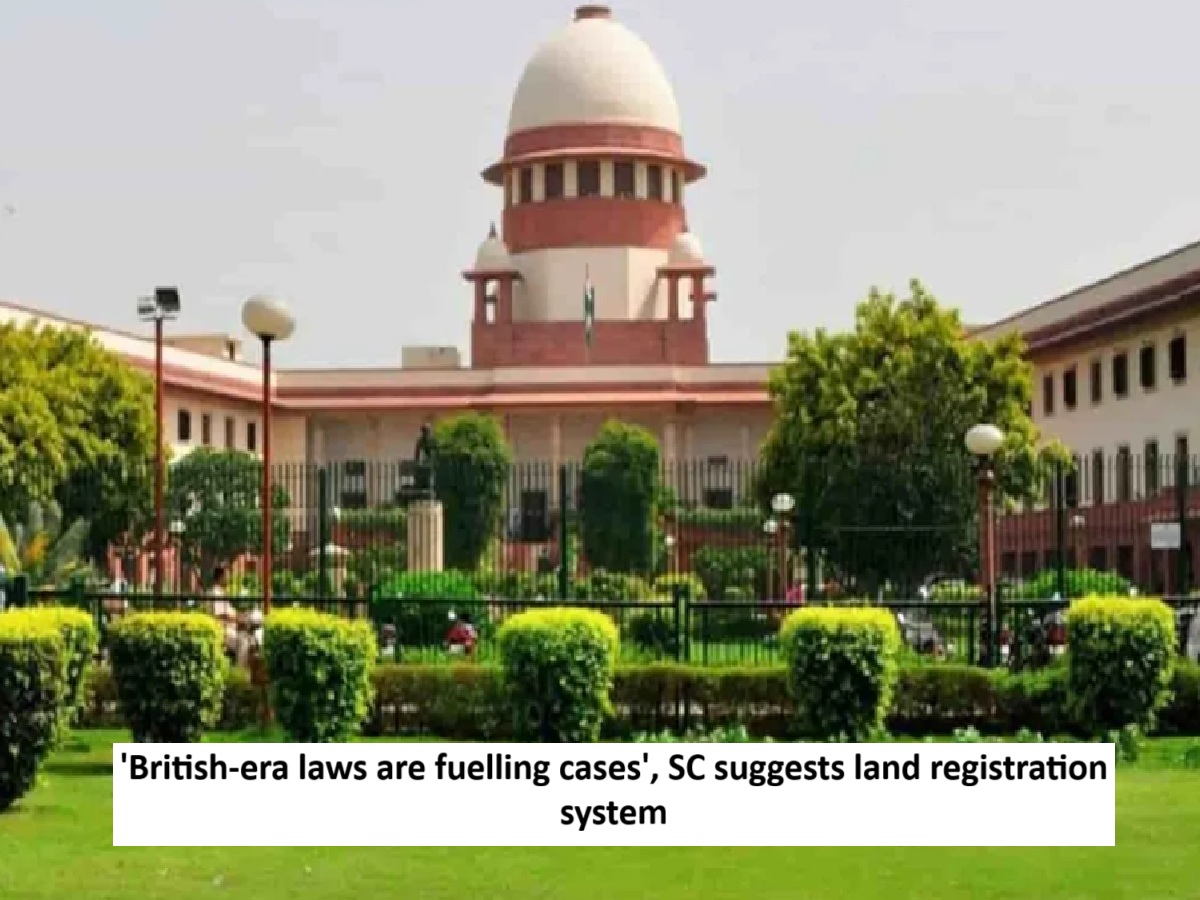
News Topical, Digital Desk : The Supreme Court has stated that the land registry and ownership system in India needs a complete overhaul. The court pointed out that even today, the laws governing property purchase and sale are based on British-era legislation, leading to confusion, delays, and significant litigation.
A bench of Justices P.S. Narasimha and Joymala Bagchi observed that these three-hundred-year-old laws are irrelevant in today's times. These outdated rules have led to the disparity between registry and ownership. The court made the observation while striking down Rule 19 of the Bihar Registration Rules, 2008.
SC gave suggestions to the Centre
The Supreme Court has advised the central government to consider adopting modern technologies such as blockchain to make the land registration system transparent and secure. The court has directed the Law Commission to conduct a detailed study on this subject.
The court ordered the Law Commission to prepare a report after consulting the central and state governments, experts, and stakeholders. The court believes that the current registration system has made property transactions extremely complex and uncertain. Purchasing a property has become a traumatic experience.
How many cases are related to land ?
The court noted that approximately 66 % of civil cases in the country involve land or property disputes. Outdated laws and disorganized administrative processes have led to fraudulent documents, delays, encroachments, and the role of middlemen.
The court stated that simply digitizing records would not solve the problem, as errors in the physical records would still be inaccurate in their digitized versions. The court commended the Digital India Land Records Modernization Program and the National Generic Document System, but deemed them insufficient.
These things need improvement
The Supreme Court asked the central government to initiate institutional reforms, and called for review and amendments to the Transfer of Property Act (1882), the Registration Act (1908), the Indian Stamp Act (1899), the Evidence Act (1872), the Information Technology Act (2000), and the Data Protection Act (2023).
--Advertisement--

 Share
Share



